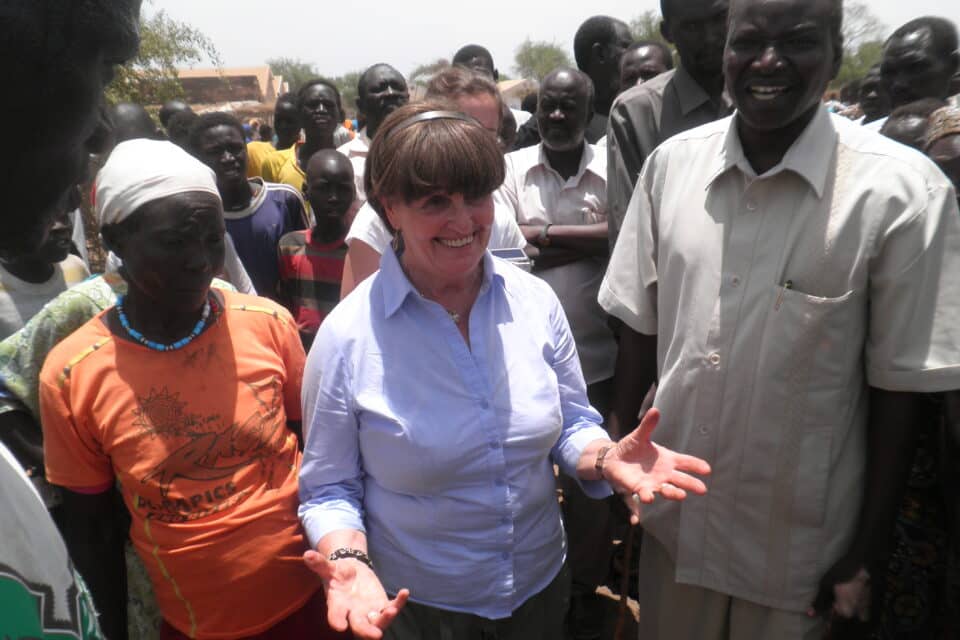Help our local partners realise their vision of hope for their communities

Caroline Cox’s ‘Credo’, originally published in ‘The Times’ on Saturday March 7 2015. It is also available on the Times website here.
Some passages in the Bible resound with what I think of as a “reverse echo”. Like an echo, they reverberate through the generations, repeating the same message, but unlike an echo, whose sound becomes fainter over time, their import becomes louder, more insistent, every year.
In Luke’s Gospel, we read about a man described as an “expert in the law” who challenges Jesus about the command to love our neighbours as ourselves. “He wanted to justify himself,” says Luke, “so he asked Jesus, ‘And who is my neighbour?’”
It is such a small question, but it sums up the human instinct to recoil from God’s call to love others in an extravagant, capacious way. In effect, the lawyer is asking “I know I should love my neighbour, but if I can restrict the definition of “neighbour” to just the people who live next door to me, then the whole thing looks a lot more doable.”
This question, posed disingenuously many centuries ago, can be asked with some integrity in 2015. With cheap air fares and round-the-clock news about people in far-flung corners of the globe, so many stories can require me to ask, to whom, out of the millions of people whom I hear about, do I owe this extravagant debt of love?
It is a question I am confronted with as founder of the Humanitarian Aid Relief Trust (HART), which provides aid and advocacy for victims of persecution and oppression. There are advantages that come with our size. A small NGO such as HART, working with local partners, can slip in under the radar to places overlooked by international media. Also, the major aid organisations can visit only with the permission of a sovereign government, something not likely to be forthcoming if that government is oppressing its own people. So HART focuses on these “forgotten” people suffering hidden persecutions, unreached by the international media.
Jesus’s answer to the lawyer is one of the most well-known Bible passages of all — the parable of the good Samaritan. He knows that in our human frailty we would prefer to restrict that command to love our neighbour to those who are like ourselves, and he is having none of it. The Samaritan whom Jesus holds up as an example would have been, to the lawyer, ethically inferior and a heretic. Those you should love, says Jesus, include those who look different from you, who speak differently, and who have different beliefs from yours.
That is why HART, a Christian organisation, advocates on behalf of Rohingya Muslims and the predominantly Buddhist Shan in Burma, as well as the predominantly Christian Kachin people, all of whom are victims of sustained offensives by the army as their government looks on. In Nigeria, we have visited Boko Haram-afflicted territory where the persecution of Muslims who will not support the group has escalated, as well as the mass slaughter and abduction of Christians.
In 2012 I co-founded the All Party Parliamentary Group on International Freedom of Religion or Belief. We campaign for freedom of religion or belief for all people across the world — who through our availability to travel and communicate like never before, have become our neighbours. In so doing I seek, albeit painfully inadequately, to follow the God who said: “Which of these three do you think was a neighbour to the man who fell into the hands of robbers?” The expert in the law replied, “The one who had mercy on him.” Jesus told him, “Go and do likewise.”
If we all do something, we can share in the privilege of making a little bit of a difference for our neighbours in some of the most challenging parts of our world today.
Baroness Cox is a crossbench peer and the founder and CEO of the Humanitarian Aid Relief Trust